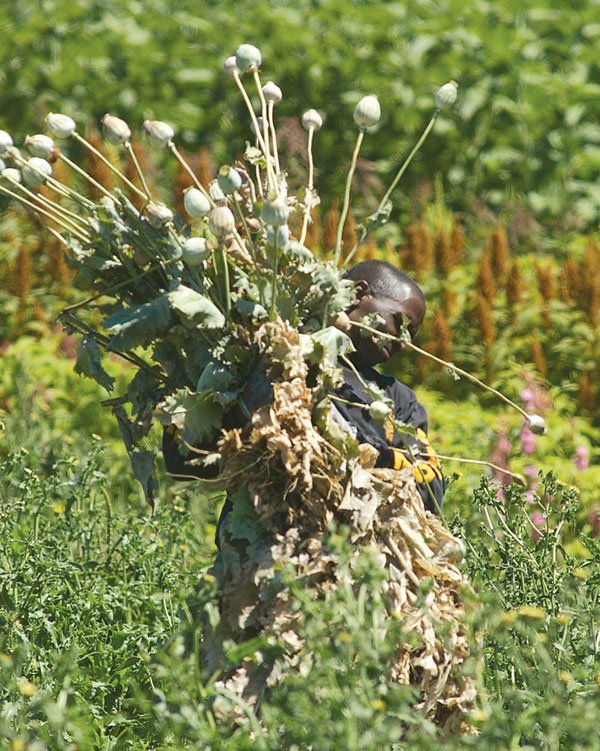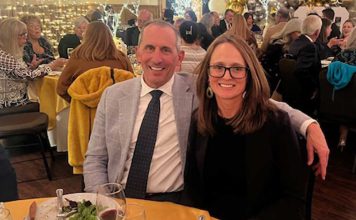I was quite amused to read the front-page news in July about the
huge opium poppy bust in San Martin.
If you missed it, federal drug enforcement agents raided a
flower farm, seizing 19,000 opium poppy plants.
I was quite amused to read the front-page news in July about the huge opium poppy bust in San Martin.
If you missed it, federal drug enforcement agents raided a flower farm, seizing 19,000 opium poppy plants. The Watsonville farmer who was growing them was not arrested after he said he had no clue he was breaking the law. He was growing the poppies as fresh-cut and dried flowers, not for drug production.
I was amused at the story because, you see, I’ve been growing opium poppies for years. Let me say straight up that I’m a law-abiding sort. I don’t try to sneak into the 10-item or less line at the supermarket if I have 11 items. I don’t litter or spit on the sidewalk. Heck, I even try to drive 65 on the freeway.
Yet, I have been growing a couple opium poppy plants for years. I say a couple now because I don’t want to see federal drug enforcement agents in my garden. It’s just that opium poppies – also known as Papaver somniferum – feature beautiful pink flowers in bloom. The species is a source of morphine, heroin and codeine when the opium sap is extracted from the poppy bulbs.
One can’t really blame the Watsonville flower grower. There are more than 100 types of poppy varieties and only one is illegal. I don’t even remember where I obtained my Papaver somniferum plants, although I vaguely remember getting them from a gardener friend somewhere along the line.
Reading about the opium poppy bust got me thinking about the possibility of federal agents coming to raid my garden. I eventually got hold of Bill Deac, a public information officer for the Drug Enforcement Administration in Washington, D.C. Deac told me that according to the Controlled Substances Act of 1970, it is not illegal to have seeds of opium poppy, but it is illegal to grow the plants. In fact, it’s punishable by up to 15 years in prison and a $25,000 fine.
All the poppy seed we consume in breads, cakes and bagels are imported from countries that have been designated to grow the plants by international agreements.
At the same time, Deac was quick to point out that the DEA is “realistic” about the law.
“It would be a preposterous idea for the DEA to go out and pursue poppy growing in individual backyards,” he said. “It would be a great waste of taxpayers’ dollars. This type of thing is best left to common sense.”
Ah, just what I was hoping to hear! With this knowledge in mind, I’ve decided my poppies are simply worth the risk. My opium poppies fit in nicely with the assortment of other poppies I grow. These include the California state flower, the golden poppy (Eschschozia californica), Oriental poppy (Papaver orientale) and Flanders field (Papaver rhoeas).
So in keeping my opium poppies, you might say that I’m a lawbreaker for the very first time.
Who knows? Maybe I’ll even start sneaking into the 10-item or less line at the supermarket when I have 11 items!
Next week, I’ll discuss law-abiding poppies.















